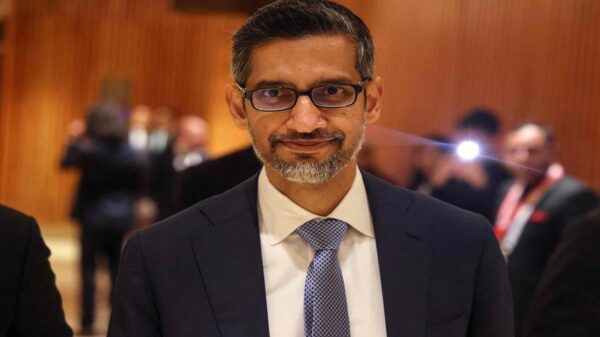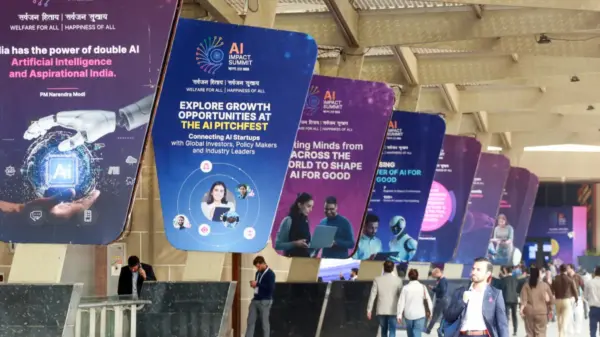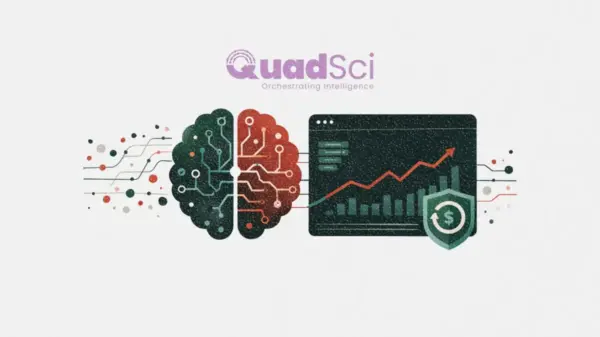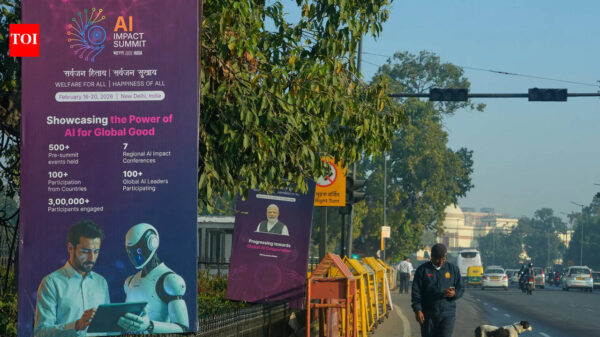Former CEO of NITI Aayog, Amitabh Kant, has raised alarm bells regarding a troubling trend in India: major global AI companies are gaining unrestricted access to Indian data through partnerships with local telecom operators and universities. Kant’s concerns center on the notion that these companies are utilizing data from Indian users to enhance their AI tools, which they may eventually sell back to India at inflated prices.
Understanding the Risks of Data Exploitation
At a recent public event, Kant highlighted the collaboration between Indian telecom operators and leading AI platforms without fully grasping the potential losses involved. He stated,
“What is happening in India, for instance, is amazing that you are one leading telephone operator, partnering with Perplexity, allowing free data to flow to Perplexity. Another large operator collaborating with Gemini Pro and allowing Indian data all to flow to Gemini PRO and OpenAI collaborating with many Indian universities to get free data.”
According to Kant, these partnerships enable foreign AI models to quickly improve their offerings, leveraging the wealth of data sourced from India. He emphasized that as these models evolve, they become more sophisticated and valuable, eventually leading to a situation where India must purchase these advanced AI tools that were developed using its own data.
Kant explained,
“All these models are getting better and then they will be selling their AI products back to you using your data, selling it back to you at very high prices.”
A Call for Data Protection: The Neo-Colonization Analogy
Kant further elaborated on the implications of this data flow, likening the situation to historical forms of exploitation where local resources were extracted at no cost, only to be sold back to the very people who produced them at inflated prices. He referred to this phenomenon as “Neo-colonization in very stealth mode.”
He stated,
“So what is happening is you are using data at zero cost and exporting at billions and billions for the billions of the world. And we must understand that this is Neo colonization in very stealth mode.”
Experts suggest that Kant’s remarks could prompt India to reevaluate its data governance policies. This includes examining how the country can assert greater control over its digital assets and ensure fair usage while protecting its interests in an increasingly data-driven world.
The implications of Kant’s warnings resonate beyond the immediate concerns of data exploitation; they spotlight the broader conversation regarding digital sovereignty and how countries, particularly in the developing world, navigate the complex landscape of global AI. The discourse serves as a crucial reminder of the need for strategic frameworks that safeguard local data while fostering innovation and collaboration.
As the AI industry continues to evolve, it is imperative for stakeholders in India to engage in discussions around data rights and ensure that the benefits of local data do not solely accrue to foreign corporations. The path forward will require concerted efforts to establish policies that protect Indian data while promoting the ethical development of AI technologies.
In conclusion, Amitabh Kant’s warnings serve as a critical reminder that while the collaboration between local operators and global AI companies can yield technological advancements, it is vital to approach such partnerships with a lens of caution to safeguard national interests and promote equitable access to AI technologies.
See also Laura Davis Highlights Texas’ AI Leadership at Texas Dynamism Summit with Key Insights on Innovation
Laura Davis Highlights Texas’ AI Leadership at Texas Dynamism Summit with Key Insights on Innovation Perplexity AI Secures FedRAMP Prioritization, Offers Government Services at $0.25 per Agency
Perplexity AI Secures FedRAMP Prioritization, Offers Government Services at $0.25 per Agency Klarna Doubles Revenue to $903M While Halving Workforce, Credits AI Efficiency
Klarna Doubles Revenue to $903M While Halving Workforce, Credits AI Efficiency Nvidia Set to Announce Earnings; Stock Up 2% as AI Demand Soars Ahead of Report
Nvidia Set to Announce Earnings; Stock Up 2% as AI Demand Soars Ahead of Report Experts Warn AI Monitoring Alone is Insufficient to Mitigate Societal Risks
Experts Warn AI Monitoring Alone is Insufficient to Mitigate Societal Risks


































































